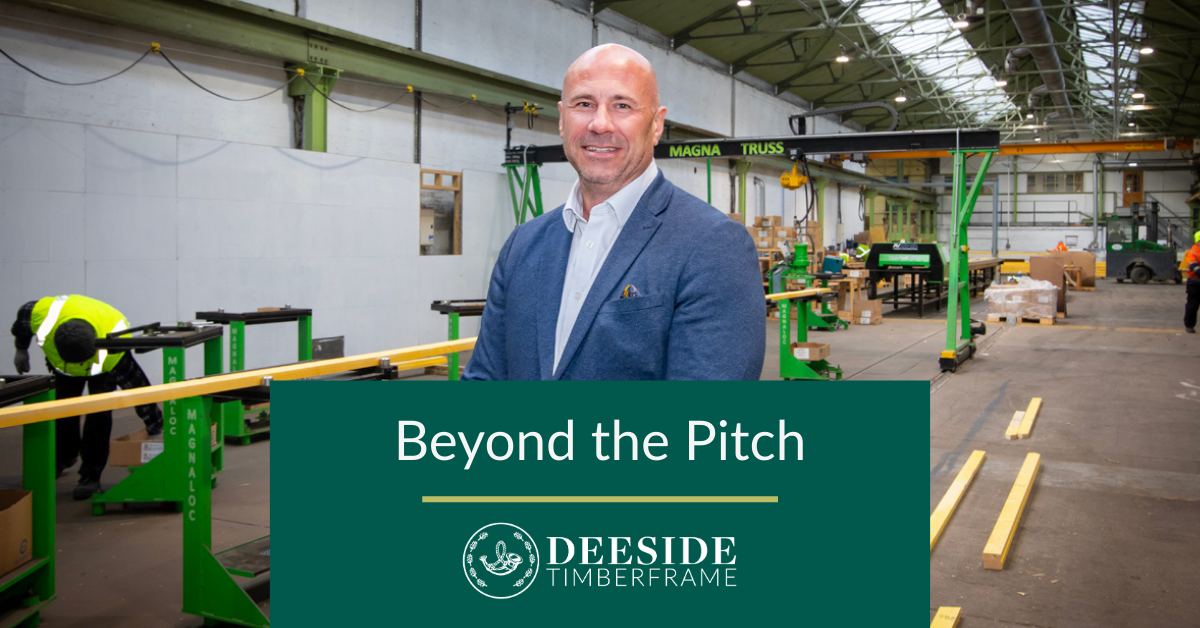
After a turbulent few years, there are signs that the UK housing market is beginning to recover. Recent data from the Office for National Statistics shows modest but steady growth in new housing starts through 2024, with industry forecasts predicting further uplift in 2025. The pace is not yet what many would like it to be, but the direction is positive, and for those of us in business development, it is a reminder that preparation and resilience matter more than ever.
At Deeside Timberframe, we have used this period of uncertainty to invest in our people, our systems, and our capacity. The result is a team that is not only ready for growth but also positioned to support developers and contractors as they adapt to new ways of building. What often goes unseen, however, is the reality of the business development role — the work that happens long before a project is won, and the persistence required when things do not go to plan.
We celebrate the wins, of course. Securing a new project validates weeks or months of hard work, analysis, and collaboration. But there are also the near misses, where a project doesn’t fall our way despite everything we have put into it. Those moments can be tough, but they are also valuable. Every experience strengthens the team’s knowledge, sharpens our understanding of client needs, and builds resilience for the next opportunity.
What makes our business development function distinctive is the ability to bridge the gap between traditional brick-and-block construction and the timber frame solutions many clients are exploring for the first time. As the market picks up, more developers and contractors are weighing up the benefits of moving to offsite manufacture. That is where the expertise of our team is critical. We help clients understand not just the product itself, but how it changes the way a programme is delivered: when follow-on trades are required, how sequencing works, and how design for manufacture and assembly (DfMA) adds efficiency and predictability to the build process.
This consultative approach is what makes business development strategic. It is not about presenting a product; it is about listening to clients, understanding their pressures, and providing solutions that stand up to financial, operational, and regulatory scrutiny. Rising build costs, a shortage of skilled labour, and tighter environmental targets are all shaping the decisions developers make today. Our role is to cut through the complexity and show how timber frame provides certainty on programme, on cost, and on quality.
Timber frame brings clear advantages: faster build times, reduced reliance on scarce site-based trades, consistent quality from factory-controlled manufacturing, and alignment with the UK’s net zero and energy efficiency ambitions. These benefits are tangible, but they are also new to many who are used to building in more traditional ways. Business development is therefore about more than pitching; it is about education, reassurance, and partnership.
Looking ahead, the opportunities are significant. Demand for housing remains high, and timber frame is increasingly recognised as a way to meet that demand more quickly and sustainably. The business development role is central to making that transition possible. By combining resilience with deep technical understanding, and by building long-term relationships based on trust, we ensure that our clients are not just choosing a product but making a strategic decision that will shape the future of their business.
That is the reality of business development today. It is not defined by individual wins or losses, but by the persistence to keep moving forward, the ability to guide clients through change, and the commitment to build partnerships that last beyond a single project. In a market that is changing fast, those qualities will make the difference between keeping pace and leading the way.
To speak to our team about your next project, email info@deesidetimberframe.com or call us on 01569 767 123.